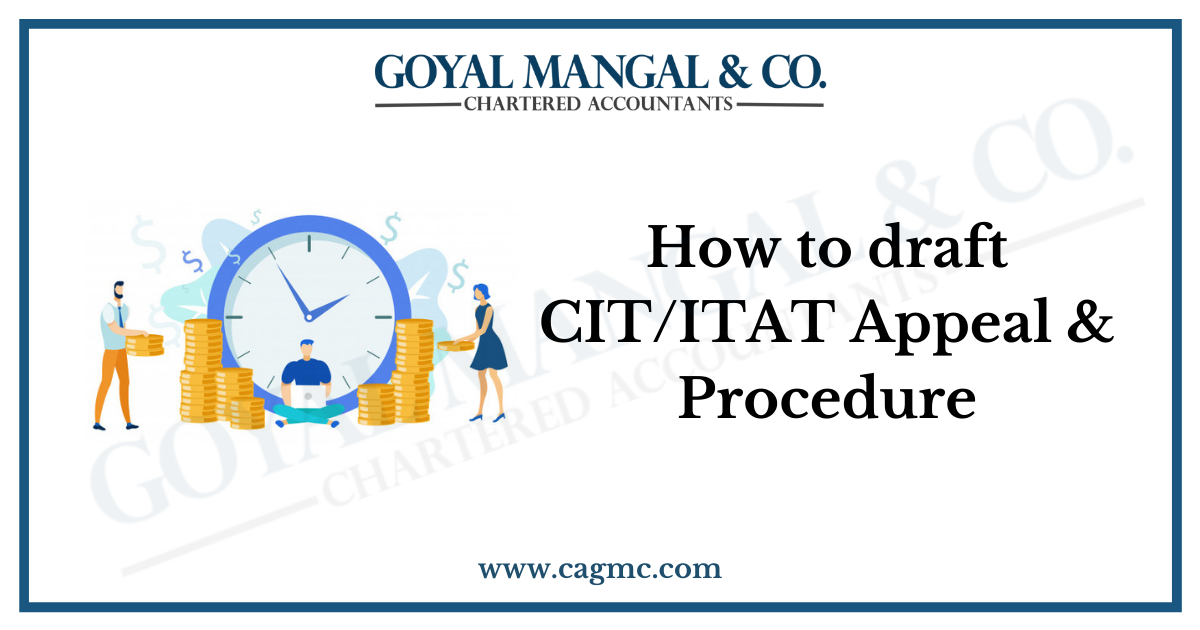| Content |
 Procedure in appeal
Procedure in appeal
- An appeal is to be filed to Commissioner in Form No 35 and to the Tribunal in Form No 36. Cross objections are to be filed in Form No 36A.
- According to notes to Form No. 35 the memorandum of appeal, statement of facts and the grounds of appeal must be in duplicate and should be accompanied by a copy of order appealed against and the notice of demand in original, if any. However, it is suggested to assessee to prepare three identical sets of appeal papers which would include the order for the sake of convenience so that he can file two sets with the commissioner and take the acknowledgement on the third.
- The memorandum should be accompanied by the prescribed fees and if the appeal is filed against an order imposing penalty, a copy of assessment order must also be attached.
- Rule 9 of the Tribunal Rules states that every memorandum of appeal to be filed before the Tribunal shall be in triplicate and shall be accompanied by two copies (at least one of which is certified copy) of the order appealed against, two copies of the grounds of appeal, before the first Appellate authority and two copies of statement of facts, if any, filed before the said Appellate Authority.
Appeal fees
- Hyderabad Bench of the Tribunal in Andhra Pradesh State Electricity Board vs. ITO (1994) 49 ITD 552 (Hyd) have held that even where total income is computed at a loss and such loss exceeds ₹1 lakh, the fees payable would be as per the slab prescribed for the income more than ₹1lakh and therefore fees are to be determined on the basis as if loss determined is income.
- The Mumbai Bench of the Tribunal in Chiranjilal S. Goenka vs. WTO (2000) 66 TTJ (Mum) 728 have held that the stay application for more than one year or for more than one order for the same assessment year can be made on payment of fees of ₹500 only.
- Further the Mumbai Bench of the Tribunal in Amruta Enterprises vs. Dy. CIT (2003) 84 ITD 172 (Mum) have held that the quantum of penalty under section 271(1) © cannot be linked with the assessed income and therefore the fees payable is as per the provisions of section 253(6) (d).
- The Tribunal (Mumbai Bench C) held that the levy of penalty under section 271B is not in any way related to total income and hence fees would be ₹500 as contemplated in section 253(6) (d).
Presentation of appeal
- An appeal to the Commissioner (Appeals) should be filed within a period of 30 days of the service of the order against which the appeal is preferred.
- An appeal to the Tribunal should be filed within a period of 60 days from the date on which the order sought to be appealed against is communicated.
Time for filing an appeal
- An appeal to the Commissioner (Appeals) should be filed within a period of 30 days of the service of the order against which the appeal is preferred.
- An appeal to the Tribunal should be filed within a period of 60 days from the date on which the order sought to be appealed against is communicated.
Delay in filing an appeal
- As per the section 249(3), a power is given to Commissioner (Appeals) to condone the delay in filing the appeal to the Commissioner (Appeals).
- Similarly, according to section 253(5) provides a power to the Tribunal to admit an appeal or permit the filing of memorandum of cross objection after the expiry of the relevant period if it is satisfied that there was sufficient cause for not presenting it within the period.
- When an application for condonation of delay in filing an appeal is preferred, it is statutory obligation of the appellate authority to consider whether sufficient cause for not presenting the appeal in time was shown by appellant.
Payment of admitted tax
- As far as appeal before the Commissioner (Appeals) is concerned, section 249(4) provides that no appeal shall be entertained under chapter XX unless at the time of filing the appeal the assessee has paid
- The taxes due on the returned income or
- Where no return is filed, an amount equal to the amount of advance tax which was payable by him.
- The Commissioner (Appeals) is empowered, for any good and sufficient reason, to exempt the assessee from operation of this provision in case of (b).
Death of an assessee
- If an assessee to an appeal dies or is adjudicated insolvent or in the case of the company wound up, the appeal will not abate and will continue against the executor, administrator or other legal representatives of the assessee or by or against the assignee, receiver or liquidator as the case may be.
- In case of death of assessee, the legal heirs of the assessee must file copy of death certificate and an affidavit of them being the legal heirs.
- A fresh memorandum of appeal signed by the legal heirs must be filed before the Commissioner (Appeals) or the Tribunal as the case may be where the assessee is the appellant so that the legal heirs are brought on record.


